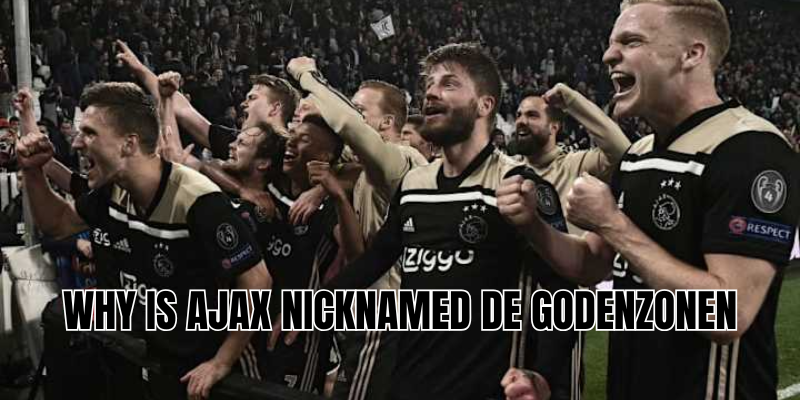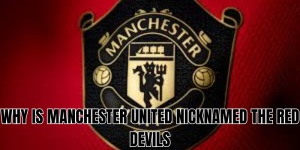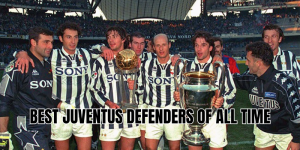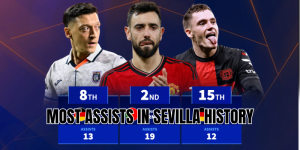From the moment you hear “de Godenzonen,” there’s a spark of mythology, pride, and identity that stirs every Ajax fan’s heart. Why is this nickname used for Ajax? What does it mean, and how did it become part of the club’s soul? In this article, AnxiScore will guide you into the story behind this evocative moniker, exploring its origins, evolution, and enduring power in Amsterdam’s football culture.
What Does De Godenzonen Mean?

Literally translated, de Godenzonen means “the Sons of the Gods.” The phrase summons a divine, legendary aura and suggests that the players of Ajax carry something more than human—something heroic or sublime. It evokes a connection to myth, greatness, and an elevated identity above ordinary clubs.
This nickname doesn’t emerge from the city skyline or a local neighborhood or a sponsor—it rises. It’s tightly tied to Ajax’s namesake, its philosophical ambitions, and the values the club aspires to embody.
The Mythological Roots: Ajax the Hero
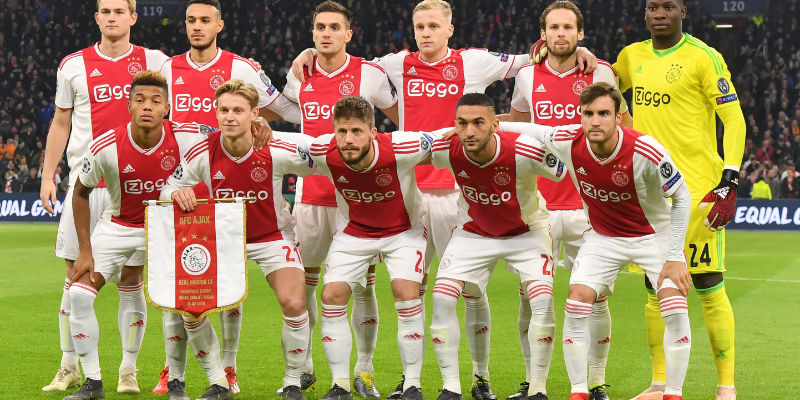
To understand de Godenzonen, we must first go back to the club’s name itself: Ajax. The club was named after the Greek mythological hero Ajax the Great, a towering figure in Homer’s Iliad. Ajax was a warrior known for strength, tenacity, and bravery—someone who stood with the greatest Greek heroes in the Trojan War.
When the club was founded in 1900, its founders chose the name Ajax, borrowing that heroic resonance. Over time that name became fertile ground for symbolism, and fans and media began associating Ajax’s players with being “sons” of that legendary lineage. The mythic imagery fit neatly with a club that would come to emphasize style, dominance, and youth development.
In myth, while Ajax is a mortal hero (not a god), his stature is elevated. The nickname stretches that symbolic bridge: Ajax, the club and the name, aspires to godlike excellence—hence, de Godenzonen.
How the Nickname Took Hold
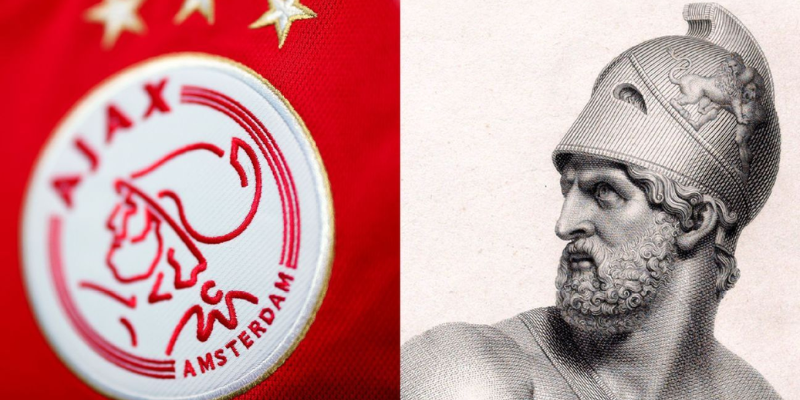
There is no single documented instant when de Godenzonen was officially coined. Rather, it emerged over time—through fans, media, club lore, and cultural embrace. Several contributing paths helped cement the nickname:
- Fan Culture & Media Usage
- As Ajax grew in stature, writers and supporters used poetic language to capture the club’s aura. Phrases like “sons of gods” began appearing in newspapers, fanzines, and chants, especially when Ajax played with flair and domination.
- Club Identity & Self-Narrative
- Ajax’s philosophy has always included ideals beyond just winning: beauty, youth, innovation, technical brilliance. That self-narrative made the mystical nickname more than poetic exaggeration—it became a self-fulfilling image.
- Literary and Cultural References
- In fact, the term “Godenzonen” has appeared in Dutch literature and discourse before being tied to football. This gave it a linguistic familiarity that allowed fans to appropriate it more naturally.
- (An interesting note: references to “godenzonen” date back into 19th-century Dutch publications, although not in a football context.)
Symbolic Reinforcement
- Over decades, every great Ajax team—from the Total Football teams of the 1970s to the academy-built sides of the 1990s and 2000s—reinforced the perception of Ajax as more than a club. Each generation of legends added weight to the name de Godenzonen.
Because it was never just a marketing label, de Godenzonen felt authentic and rooted in the club’s spirit.
The Symbolic Power and Interpretations
The nickname de Godenzonen carries multiple layers of meaning and emotional power:
- Excellence & High Standards
- It signals that Ajax is not merely a local force, but one chasing the highest heights—similar to gods in myth. It’s an aspirational brand: players are meant to live up to that legacy.
- Myth & Legend, Not Just Sport
- By invoking myth, the club positions itself in a borderland between sport and legend. Matches become more than games—they become chapters in a grand story.
- Generational Continuity
- “Sons” implies lineage. Ajax sees itself as producing generation after generation of footballers who carry a shared DNA—an identity, philosophy, and style that passes. The youth academy (De Toekomst) becomes part of that sacred thread.
Cultural Branding
- The nickname differentiates Ajax from any generic “Red-White Club.” It gives a unique voice. Even rival fans know it: Ajax is not just another Dutch club, it’s the club with a mythic lineage.
- Pride, Identity & Belonging
- For supporters, wearing the badge is more than fandom—it’s membership. Being a “Godenzoon” (a son of the gods) gives emotional gravitas to loyalty, chants, and even rivalries.
Some Misconceptions and Clarifications
- It’s Not Literal
- Of course, Ajax players are not literal gods or divine beings. The nickname is poetic, symbolic, and aspirational. It doesn’t confer immortality, but it frames ambition.
It’s Different from “De Joden”
- Ajax also has another famous nickname: De Joden (The Jews). That one comes, and later supporters embraced it (controversially) in response to chants. De Godenzonen is separate—rooted not in geography or identity but in myth, style, and aspiration.
Not Exclusive—Used by Many
- While Ajax is the club most associated with Godenzonen, the phrase “godenzonen” (sons of gods) existed as a literary phrase decades earlier. But in football, it’s uniquely Ajax’s.
How the Nickname Lives in Ajax Culture Today
Today, de Godenzonen isn’t just a nostalgic label—it remains woven into how Ajax presents itself:
- Media and Commentary
- Match reports, club communications, documentaries, and fan media often invoke the nickname when highlighting special moments, anniversaries, or historic players. It’s part of the lexicon.
- Club Merchandise & Branding
- While Ajax doesn’t plaster “Sons of the Gods” on every jersey, special publications, books, scarves, and fan merchandise occasionally reference it, reinforcing its mythic status.
- Youth Academy & Identity
- Young players entering Ajax often learn about the nickname as part of club lore. It helps instill pride and a sense of responsibility.
- Symbolic Moments
- When Ajax achieves something sublime—European runs, youth titles, breathtaking style—the tagline resurfaces: “Godenzonen delivered again.” It is part of the emotional narrative.
Why It Resonates Beyond Amsterdam
Even many non-Dutch fans know or admire the nickname. Why?
- Universal Mythic Appeal
- Across cultures, references to gods, heroes, and lineage evoke something grand. It taps a universal love for stories beyond sport.
Matches Expectations
- Ajax’s football history lives up to the name: producing legends, dominating domestically, pushing in Europe. That consistency makes de Godenzonen credible, not just poetic.
Media Amplification
- Writing about Ajax without acknowledging de Godenzonen feels incomplete. The nickname gives journalistic color and helps SEO value for content about Ajax identity, legends, and brand.
Emotional Connection
- Fans want to feel part of something larger than wins and trophies. De Godenzonen gives them a myth to believe in, a banner to carry, and a voice to chant.
Conclusion
De Godenzonen is not a superficial nickname—it’s a profound imprint on Ajax’s heart. It springs, connects to the club’s name and ambitions, and has grown organically through decades of legend-making, identity-building, and emotional resonance. The club’s style, youth ethos, and historical weight make the nickname feel earned, not imposed. De Godenzonen lives because generations of players and supporters have made it real.
In this article, AnxiScore has traced why Ajax is nicknamed de Godenzonen, its evolution, symbolism, and place today. If you want more on Ajax legends, club history, or how nicknames shape fan culture, dive into our archives—and carry the spirit of the Godenzonen with you as you follow the beautiful game.

